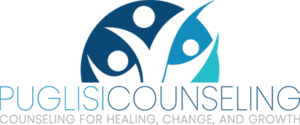Obsessive-Compulsive Disorder (OCD) is a mental health condition characterized by intrusive thoughts
and repetitive behaviors. While managing OCD can be challenging, therapy offers a beacon of hope for
those seeking relief. Let’s explore how therapy can effectively alleviate OCD symptoms and empower
individuals to regain control over their lives.
Understanding OCD and its Impact
OCD manifests through distressing obsessions, such as fears of contamination or harm, and
compulsions, like excessive washing or checking. These symptoms can significantly impair daily
functioning, disrupt relationships, and undermine overall well-being. Living with OCD often entails
navigating a cycle of anxiety-provoking thoughts and compulsive rituals, perpetuating distress and
exacerbating symptoms.
How Therapy Can Help
- Providing a Safe and Supportive Environment: Therapy offers a confidential and non-judgmental
space for individuals to explore their experiences with OCD. A skilled therapist provides
empathy, validation, and understanding, fostering a sense of safety and trust essential for
therapeutic progress. - Cognitive-Behavioral Therapy (CBT): CBT is the gold standard treatment for OCD, focusing on
challenging and modifying maladaptive thought patterns and behaviors. Exposure and Response
Prevention (ERP), a specific CBT technique, involves gradual exposure to feared stimuli while
refraining from engaging in compulsive behaviors. Through repeated exposure, individuals learn
to tolerate anxiety without resorting to rituals, ultimately diminishing OCD symptoms. - Identifying Triggers and Patterns: Therapy helps individuals identify specific triggers and
underlying patterns perpetuating their OCD symptoms. By gaining insight into the factors
contributing to their distress, individuals can develop targeted strategies for coping more
effectively and breaking free from the cycle of obsessions and compulsions. - Challenging Negative Beliefs: Therapists assist individuals in challenging negative beliefs and
cognitive distortions associated with OCD. By examining the evidence for and against their
beliefs, individuals can develop a more balanced and realistic perspective, reducing the power of
their obsessions and compulsions. - Developing Coping Skills: Therapy equips individuals with practical coping skills to manage
anxiety and tolerate uncertainty. Techniques such as thought stopping, cognitive restructuring,
and behavioral experiments empower individuals to confront their fears and resist the urge to
engage in compulsive behaviors. - Building Resilience and Self-Compassion: Therapy fosters resilience and self-compassion by
helping individuals develop a greater sense of self-awareness, acceptance, and self-compassion. By cultivating a compassionate attitude towards oneself, individuals can learn to be kinder and more forgiving towards their imperfections, reducing feelings of shame and guilt associated with OCD.
Therapy holds immense promise for individuals grappling with OCD, offering a path towards healing,
empowerment, and reclaiming control over their lives. By providing a safe and supportive environment,
implementing evidence-based techniques like CBT, and fostering resilience and self-compassion, therapy
equips individuals with the tools they need to effectively manage their symptoms and embark on a
journey towards recovery. If you or someone you know is struggling with OCD, know that help is
available, and you are not alone.










